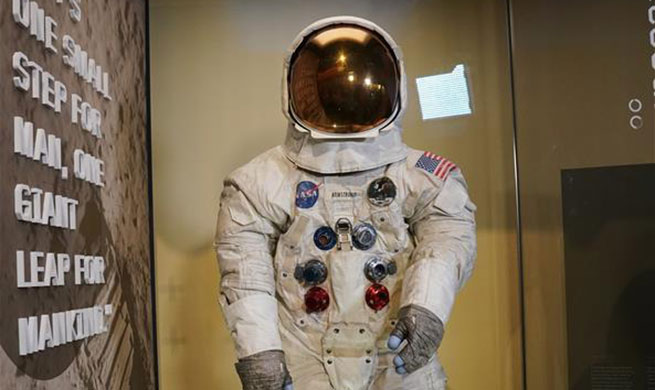NEW YORK, July 16 (Xinhua) -- The New York City police officer who caused the chokehold death of an unarmed black man during an attempted arrest in 2014 will not face criminal charges, federal prosecutors said here on Tuesday.
Richard Donoghue, U.S. Attorney of the Eastern District of New York, said there was insufficient evidence that officer Daniel Pantaleo broke the law or violated the civil rights of Eric Garner, who was selling cigarettes illegally outside a convenience store in the borough of Staten Island before his death on July 17 five years ago.
"Even if we could prove that Officer Pantaleo's hold of Mr. Garner constituted unreasonable force, we would still have to prove beyond a reasonable doubt that Officer Pantaleo acted willfully in violation of the law," he said.
The decision was made by U.S. Attorney General William Barr, who sided with federal prosecutors in New York instead of civil rights prosecutors in Washington, media reports cited a senior Justice Department official as saying.
After a grand jury ruled in 2014 not to indict Pantaleo, the case was raised to the Department of Justice (DOJ) and was ended one day before its five-year anniversary.
A video clip of the incident shows Garner, who refused to be handcuffed by the police, crying out "I can't breathe" at least 11 times when the officer put him in a chokehold before he eventually lost consciousness.
The widely-circulated video catalyzed a nationwide Black Lives Matter movement at a time when a number of African Americans died during their encounter with police.
"We all saw the same devastating video 5 years ago. Our eyes did not lie," New York Attorney General Letitia James said on Twitter after the announcement of the decision.
"We'll continue to fight to reform a criminal justice system that remains broken," she continued.
Garner's mother, Gwen Carr, said at a press conference Tuesday that the DOJ "has failed us" and her family are "not going away."
"That officer, Officer Pantaleo, and all the officers who was involved in my son's death that day, need to be off the force," said Carr.
"I stood quietly by for five years; I'm not being quiet anymore," she added.












